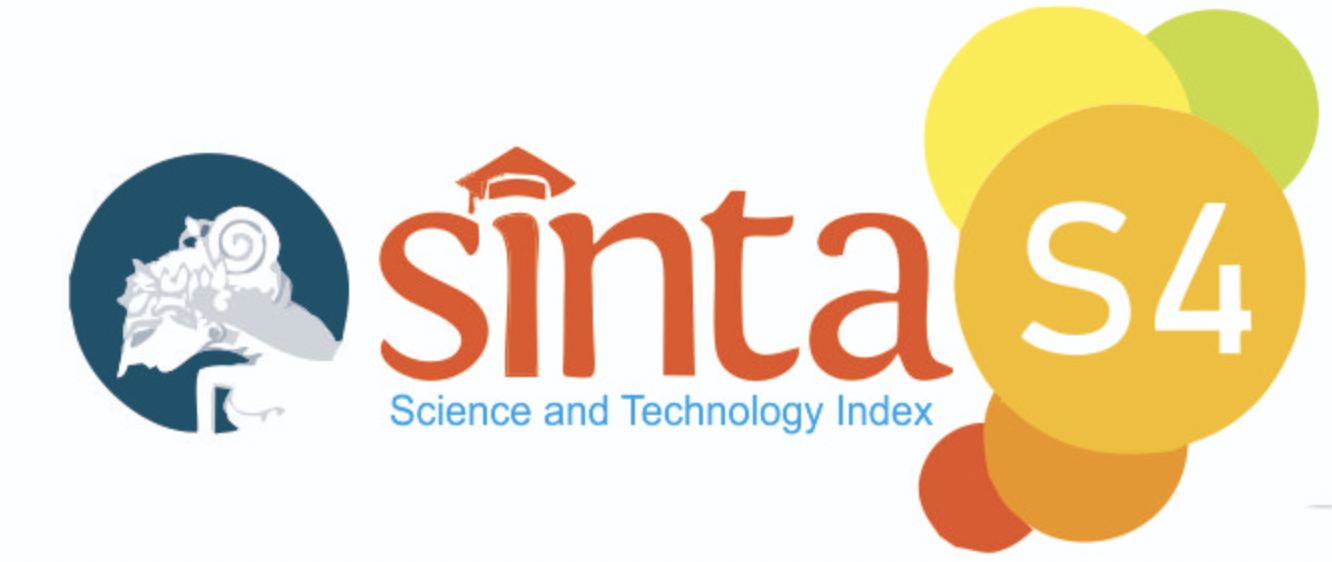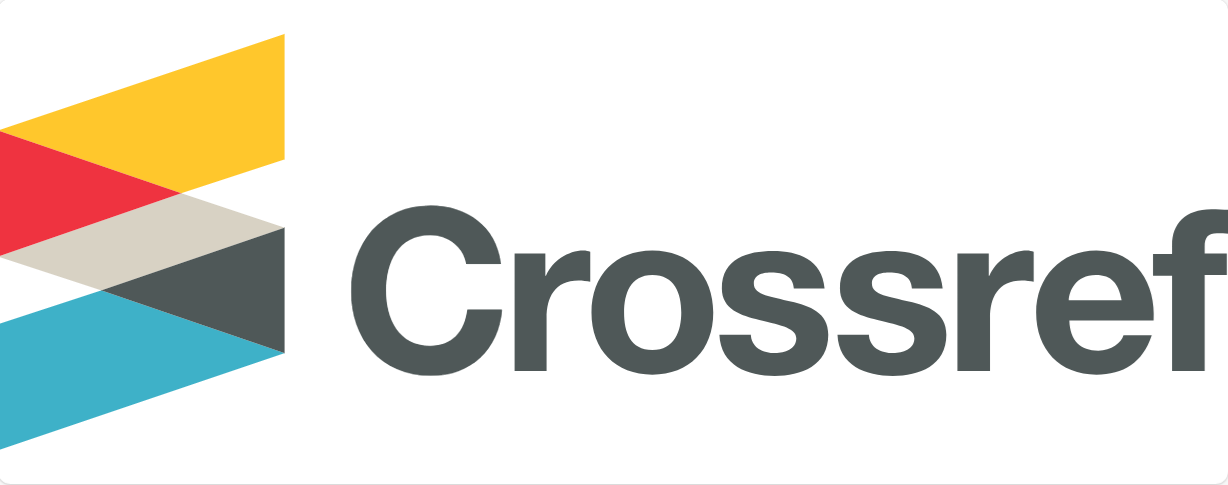Abstract
This article describes the distinct of privacy and security issues that are simultaneously operant in the KMS practices. It identifies several perceptions of privacy and security issues in the company’s KMS settings. By studying the perspective, authors provide a conceptual directions to the fog of misunderstandings around privacy and security in company’s KMS settings. An exploratory sequential mixed method research design was adopted. A questionnaire survey was administered by authors personally handing to KM staff in three companies, followed by semi-structure interviews with four KM staff. The findings of this study show that the employees were aware of the importance of KMS in the companies, and hence had a high awareness of personal information privacy and security issues. In short, the distinct perspective of privacy issue in companies can be distinguished from organizational layer of KMS through three dimensions; confidentiality, trust, and behavior. While the security aspects in KMS have complied with ICT layer which constructed by legal framework and KMS architecture.
Bahasa Abstract
Penelitian ini dimaksudkan untuk mengidentifikasi signifikasi diskursus KM di era digital dengan menitikberatkan pada hubungan antara perspektif konseptual KMS dengan privasi dan keamanan pengetahuan (secure knowledge) karyawan di perusahaan. Selain itu, studi ini mengkonseptualisasikan isu privasi dan keamanan di KMS berdasarkan landasan teoritis dengan kerangka acuan konseptual (conceptual directions) untuk pengembangan KMS di masa depan. Penelitian ini mengadopsi pendekatan exploratory sequential mixed method. Teknik pengambilan data pada penelitian menggunakan kuesioner dan wawancara tidak terstruktur di empat karyawan di tiga perusahaan di Jawa Timur. Hasil penelitian ini memberikan perspektif baru terhadap diskusi KMS dengan mengidentifikasi perspektif, konsep, dan strategi terkait dengan pengelolaan isu privasi dan keamanan di perusahaan. Perspektif karyawan terhadap isu privasi di dalam KMS perusahaan memiliki kesamaan dan cenderung menunjukkan respon positif. Hasil analisis data menunjukkan bahwa perspektif karyawan terhadap isu privasi dan keamanan di KMS dapat ditelaah dari sisi organisasional dan sisi ICT. Sisi organisasional mencakup tiga dimensi terkait dengan isu privasi, yaitu: kerahasiaan (confidentiality), kepercayaan (trust), dan perilaku (behavior). Sedangkan dari segi ICT, perusahaan dapat mempertimbangkan aspek kemanan terhadap data personal karyawan melalui dua aspek; legal framework dan arsitektur-infrastruktur KMS.
References
- Alavi, M., & Leidner, D. E. (2001). Review: Knowledge Management and Knowledge Management Systems: Conceptual Foundations and Research Issues. MIS Quarterly, 25(1), 107–136. https://doi.org/10.2307/3250961
- Aldi, E. B. (2005). Menjadikan Manajemen Pengetahuan Sebagai Keunggulan Kompetitif Perusahaan Melalui Strategi Berbasis Pengetahuan. Jurnal Studi Manajemen Dan Organisasi, 2(1), 58–68.
- Bajpai, K., & Weber, K. (2017). Privacy in Public: Translating the Category of Privacy to the Digital Age. In R. Durand, N. Granqvist, & A. Tyllström (Eds.), Research in the Sociology of Organizations (Vol. 51, pp. 223–258). Emerald Publishing Limited. https://doi.org/10.1108/S0733-558X20170000051006
- Ball, K., Daniel, E. M., & Stride, C. (2012). Dimensions of Employee Privacy: an Empirical Study. Information Technology & People, 25(4), 376–394. https://doi.org/10.1108/09593841211278785
- Baskaran, V., Davis, K., Bali, R. K., Naguib, R. N. G., & Wickramasinghe, N. (2013). Managing Information and Knowledge within Maternity Services: Privacy and Consent Issues. Informatics for Health and Social Care, 38(3), 196–210. https://doi.org/10.3109/17538157.2012.735732
- Becerra-Fernandez, I., & Sabherwal, R. (2015). Knowledge Management: Systems and Processes (Second edition). New York, NY: Routledge.
- Bertino, E., Khan, L. R., Sandhu, R., & Thuraisingham, B. (2006). Secure Knowledge Management: Confidentiality, Trust, and Privacy. IEEE Transactions on Systems, Man, and Cybernetics - Part A: Systems and Humans, 36(3), 429–438. https://doi.org/10.1109/TSMCA.2006.871796
- Budiyono, H. (2009). Implementation and Measurement of Knowledge Management (KM) in Indonesia, 3.
- Choe, J.-M. (2016). The Construction of an IT Infrastructure for Knowledge Management. Asian Academy of Management Journal, 21(1), 137–159.
- Creswell, J. W. (2014). Research design: qualitative, quantitative, and mixed methods approaches (4th ed). Thousand Oaks: SAGE Publications.
- Clobridge, A. (2016) Open Knowledge Versus Knowledge Management. Online Searcher, Vol 40, 68-70.
- Drachsler, H., & Greller, W. (2016). Privacy and Analytics: It’s a DELICATE Issue a Checklist for Trusted Learning Analytics. In Proceedings of the Sixth International Conference on Learning Analytics & Knowledge - LAK ’16 (pp. 89–98). Edinburgh, United Kingdom: ACM Press. https://doi.org/10.1145/2883851.2883893
- Evans, N. (2017). Virtue Ethics in Knowledge Management. In A. J. G. Sison, G. R. Beabout, & I. Ferrero (Eds.), Handbook of Virtue Ethics in Business and Management (pp. 1231–1243). Dordrecht: Springer Netherlands. https://doi.org/10.1007/978-94-007-6510-8_94
- Fishleigh, J. (2015). Is Someone Watching You? Data Privacy and Protection: Current Issues. Legal Information Management, 15(01), 61–69. https://doi.org/10.1017/S1472669615000183
- Fried, C. (1968). Privacy. The Yale Law Journal, 77(3), 475–493. https://doi.org/10.2307/794941
- Froomkin, A. M. (2017). Privacy Impact Notices to Address the Privacy Pollution of Mass Surveillance. Privacy in Public Space. Retrieved from https://www.elgaronline.com/view/edcoll/9781786435392/9781786435392.00015.xml
- Hartono, B., Ramadhani, V. S., Ratnadilla, Y., Indarti, N., & Chai, K. H. (2015). Knowledge Management Maturity and Organizational Performance in Project-based Organizations: Initial Evidence from Indonesia. In 2015 IEEE International Conference on Industrial Engineering and Engineering Management (IEEM) (pp. 656–660). Singapore, Singapore: IEEE. https://doi.org/10.1109/IEEM.2015.7385729
- He, W., Qiao, Q., & Wei, K.-K. (2009). Social Relationship and Its Role in Knowledge Kanagement Systems Usage. Information & Management, 46(3), 175–180. https://doi.org/10.1016/j.im.2007.11.005
- Surbakti. Herison. (2015). Web Technology Knowledge Management and its Privacy and Security Challenge. https://doi.org/10.13140/2.1.3178.2727
- Khiste, G. P., Maske, D. B., & Deshmukh, R. K. (2018). Knowledge Management Output in Scopus during 2007 to 2016. Asian Journal of Research in Social Sciences and Humanities, 8(1), 10. https://doi.org/10.5958/2249-7315.2018.00002.3
- Kokolakis, S. (2017). Privacy Attitudes and Privacy Behaviour: A Review of Current Research on the Privacy Paradox Phenomenon. Computers & Security, 64, 122–134. https://doi.org/10.1016/j.cose.2015.07.002
- Kurniawan, Y., Hardianto, A., Meylani, F., & Wandy. (2018). The Influence of Knowledge Management Capabilities on Organizational Effectiveness. Journal of Theoretical and Applied Information Technology, 96(18), 6150–6171.
- Liao, S. (2003). Knowledge Management Technologies and Applications—Literature Review from 1995 to 2002. Expert Systems with Applications, 25(2), 155–164. https://doi.org/10.1016/S0957-4174(03)00043-5
- Liu, C., Marchewka, J. T., Lu, J., & Yu, C.-S. (2005). Beyond Concern—a Privacy-Trust-Behavioral Intention Model of Electronic Eommerce. Information & Management, 42(2), 289–304. https://doi.org/10.1016/j.im.2004.01.003
- Maheswari, N., & Duraiswamy, K. (2009). PPKM: Preserving Privacy in Knowledge Management. International Business Research, 2(2). https://doi.org/10.5539/ibr.v2n2p182
- Maier, R. (2007). Knowledge Management Systems: Information And Communication Technologies for Knowledge Management (3rd ed). Berlin ; New York: Springer.
- Majumdar, D., Catherine, R., Ikbal, S., & Visweswariah, K. (2011). Privacy Protected Knowledge Management in Services with Emphasis on Quality Data. In Proceedings of the 20th ACM International Conference on Information and Knowledge Management (pp. 1889–1894). New York, NY, USA: ACM. https://doi.org/10.1145/2063576.2063848
- Matzner, T. (2014). Why Privacy is Not Enough Privacy in the Context of “ubiquitous computing” and “big data.” Journal of Information, Communication and Ethics in Society, 12(2), 93–106. https://doi.org/10.1108/JICES-08-2013-0030
- McDermott, R. (2000). Why information technology inspired but cannot deliver knowledge management. In Knowledge and communities (pp. 21-35).
- Mittal, Y. K., Roy, S., & Saxena, M. (2010). Role of Knowledge Management in Enhancing Information Security. IJCSI Int. J. Comput. Sci. Issues, 7(6).
- Moor, J. H. (1991). The Ethics of Privacy Protection. Retrieved from https://www.ideals.illinois.edu/handle/2142/7714
- Miltgen, C. L., & Smith, H. J. (2015). Exploring Information Privacy Regulation, Risks, Trust, and Behavior. Information & Management, 52(6), 741–759. https://doi.org/10.1016/j.im.2015.06.006
- Moharana, C. R., & Satapathy, S. K. (2017). Knowledge Management Effectiveness in Securing Information and Network Systems: A Study on Odisha. Asian Resonance, 6(3), 26–33.
- Moll, R., Pieschl, S., & Bromme, R. (2014). Competent or Clueless? Users’ Knowledge and Misconceptions About their Online Privacy Management. Computers in Human Behavior, 41, 212–219. https://doi.org/10.1016/j.chb.2014.09.033
- Muniraman, C., Damodaran, M., & Ryan, A. (2007). Security and privacy issues in a knowledge management system. In 6th Annual Security Conference.
- Rahim, F. A., Ismail, Z., & Samy, G. N. (2016). A Review on Influential Factors of Information Privacy Concerns in the Use of Electronic Medical Records. International Journal of Computer Science and Information Security, 14(7), 17.
- Republik Indonesia. (2016). Peraturan Menteri Komunikasi dan Informatika No. 20 Tahun 2016 tentang Perlindungan Data Pribadi Dalam Sistem Elektronik. Sekretariat Negara. Jakarta.
- Republik Indonesia. (2016). Undang-Undang No. 19 Tahun 2016 tentang Perubahan Undang-Undang No. 11 Tahun 2008 Tentang Informasi dan Transaksi Elektronik. Sekretariat Negara. Jakarta
- Park, S.-J., & Lee, M. H. (2008). Awareness of the Privacy Concerns in Knowledge Management in Sholarly Publishing from 200 to 2004. Journal of The Korea Society for Information Management, 25(2), 99–114. https://doi.org/10.3743/KOSIM. 2008.25.2.099
- Park, Y. J. (2013). Digital Literacy and Privacy Behavior Online. Communication Research, 40(2), 215–236. https://doi.org/10.1177/0093650211418338
- Privacy International. (n.d.). State of Privacy Indonesia. Retrieved November 14, 2018, from http://privacyinternational.org/state-privacy/1003/state-privacy-indonesia
- Ren, Y., Cheng, F., Peng, Z., Huang, X., & Song, W. (2011). A Privacy Policy Conflict Detection Method for Multi-Owner Privacy Data Protection. Electronic Commerce Research, 11(1), 103–121. https://doi.org/10.1007/s10660-010-9067-8
- Stalla-Bourdillon, S., Phillips, J., & Ryan, M. D. (2014). Privacy vs. security. London: Springer. Diambil dari http://public.eblib.com/choice/publicfullrecord.aspx?p=1802559
- Sundiman, D., & Putra, S. S. (2016). Knowledge Management Role on Creating Service Excellence: Case Study on Building Materials Supermarket In the city of Sampit - Indonesia. In Proceedings of the The 11th International Knowledge Management in Organizations Conference on The changing face of Knowledge Management Impacting Society - KMO ’16 (pp. 1–6). Hagen, Germany: ACM Press. https://doi.org/10.1145/2925995.2926044
- Susanty, A. I., & Salwa, M. (2017). Knowledge Management Practices and Organizational Learning Have Positive Impacts on Organizational Performance of State-Owned Enterprises in Indonesia. Mediterranean Journal of Social Sciences, 8(3), 281–292. https://doi.org/10.5901/mjss.2017.v8n3p281
- Skinner, G., Han, S., & Chang, E. (2006). An Information Privacy Taxonomy for Collaborative Environments. Information Management & Computer Security, 14(4), 382–394. https://doi.org/10.1108/09685220610690835
- Timan, T., Newell, B. C., & Koops, B.-J. (2017). Privacy in Public Space: Conceptual and Regulatory Challenges. Edward Elgar Publishing.
- Un Jan, A., & Contreras, V. (2016). Success Model for Knowledge Management Systems Used by Doctoral Researchers. Computers in Human Behavior, 59, 258–264. https://doi.org/10.1016/j.chb.2016.02.011
- Wang, S., Noe, R. A., & Wang, Z.-M. (2014). Motivating Knowledge Sharing in Knowledge Management Systems: A Quasi–Field Experiment. Journal of Management, 40(4), 978–1009. https://doi.org/10.1177/0149206311412192
- Wijayanti, D. P., & Sundiman, D. (2017). Pengaruh Knowledge Management Terhadap Kinerja Karyawan: Studi Empiris Pada PT. SMS Kabupaten Kotawaringin Timur [The Influence of Knowledge Management toward Employee Performance: An Empirical Study at PT. SMS Korawaringin Timur District]. DeReMa (Development Research of Management): Jurnal Manajemen, 12(1), 69. https://doi.org/10.19166/derema.v12i1.243
- Wilton, R. (2017). After Snowden – The Evolving Landscape of Privacy and Technology. Journal of Information, Communication and Ethics in Society, 15(3), 328–335. https://doi.org/10.1108/JICES-02-2017-0010
Recommended Citation
Satibi, Iswanda F. and Atmi, Ragil Tri
(2019)
"Konseptualisasi Isu Privasi dan Keamanan pada Knowledge Management System (KMS) Perusahaan,"
Jurnal Ilmu Informasi, Perpustakaan, dan Kearsipan: Vol. 21:
No.
2, Article 1.
DOI: 10.7454/JIPK.v21i2.001
Available at:
https://scholarhub.ui.ac.id/jipk/vol21/iss2/1
Included in
Archival Science Commons, Collection Development and Management Commons, Information Literacy Commons







